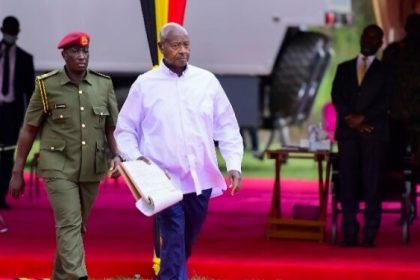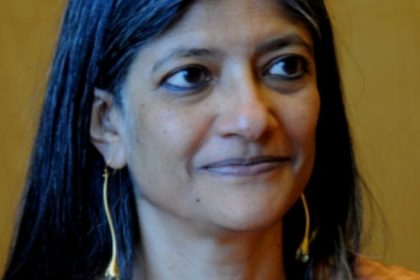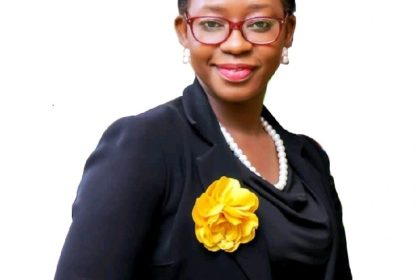Orton Edgar Ching’oli Chirwa forgotten martyr of African democracy and human rights

By Richard Okumu-Wengi
Retired Justice of the High Court of Uganda
On December 8, 2023, the Centre for Human Rights, Faculty of Law of the University of Pretoria, named Grace Wakio Kakai, the Deputy Registrar of the African Court of Justice as the recipient of the Vera Chirwa Award for that year. Instituted in 2006, the award, named after Vera Mlangazua Chirwa, honours alumni of the master’s in human Rights and Democracy in Africa Programme, who best embody the spirit of the programme in their professional career by continuously bringing positive contributions to human rights.
The award is a fitting tribute to a woman who was not only the first female lawyer in Malawi, but was also spouse to Orton Edgar Ching’oli Chirwa, an astute legal mind, human rights activist and teacher, who died on October 20, 1992, in incarceration during deceased dictator Kamuzu Banda’s brutal reign over Malawi. Orton died deaf and blind in prison in Zomba in Malawi, following persecution and detention in inhuman conditions, by the very man he had helped to install into power.
 I had the privilege to know the Chirwas, while a student pursuing a Bachelor of Law at the University of Dar es Salaam, back in the early seventies. The man who made us lawyers and remains my idol to this day, ended up in Tanzania under rather unfortunate circumstances.
I had the privilege to know the Chirwas, while a student pursuing a Bachelor of Law at the University of Dar es Salaam, back in the early seventies. The man who made us lawyers and remains my idol to this day, ended up in Tanzania under rather unfortunate circumstances.
Alongside his wife Vera, Orton Chirwa was forced into exile, a few years after independence, in a drama that has been emulated many times over elsewhere in post-independence Africa. The first Attorney General of Malawi, Chirwa, was the founder of the Malawi Congress Party. He handed, the party leadership to Kamuzu Banda, who much older than him, in 1960, just as Malawi’s agitation for independence, entered a pivotal phase. The first graduate lawyer in Malawi, Chirwa became the natural selection for Attorney General, when Malawi gained independence in 1964.
But he would not last a year in the office and found himself in exile. His fall out with Kamuzu Banda, stemmed from the latter’s turning his back on the aspirations of Malawians, especially indigenisation of the public service; and instead focused on entrenching himself as life president of Malawi.
Chirwa settled in Dar es Salaam and even as a refugee, was allowed to practice as an advocate in Tanzania. He also taught us criminal law at the University of Dar es Salaam. His wife Vera was also known to us and worked for the East African Community in Arusha.
A pan-Africanist and advocate of African liberation, President Mwalimu Julius Nyerere allowed refugee intellectuals like Chirwa, Huaraka of Namibia, Walter Rodney, Dani Nabudere and Yash Tandon of Uganda to teach at the University of Dar es salaam.
Even in exile, he never gave up on Malawi. He created a new political party, the Malawi Freedom Movement, which did not gain much traction inside Malawi for the simple reason that it was an exile-based organization challenging Banda’s one-party state.
Chirwa and Vera’s lives would take a tragic turn on Christmas eve 1981, when during a visit to Zambia with their son Fumbani, the trio were abducted by Malawian secret police and repatriated to Malawi, as they checked a sick relative in the border area. The state charged them with aggression and treason. After a farcical trial in which they were not even accorded legal representation, two years later, the couple were sentenced to death. After much international pressure, Banda commuted their sentences to life imprisonment.
They were held in inhumane conditions in separate prisons, where Chirwa’s health progressively deteriorated until his death in custody on October 20,1992 at the age of 73.
When the epitaph of Malawi and Africa’s struggle for freedom is finally written, Chirwa will be remembered as an enduring symbol of the struggle and sacrifices the early crusaders had to make, for the relative degree of human dignity and political freedoms that the present generations enjoy.

 Kenya’s President Ruto spotlights IMF weaknesses amidst African distress
Kenya’s President Ruto spotlights IMF weaknesses amidst African distress
 Developing countries can use AI to leapfrog into the future
Developing countries can use AI to leapfrog into the future
 Why we beg to differ with President Museveni on permanent terms pronouncement
Why we beg to differ with President Museveni on permanent terms pronouncement
 Uganda’s Aviation Infrastructure: Time for ambitious upgrades and structural reform
Uganda’s Aviation Infrastructure: Time for ambitious upgrades and structural reform
 Why and how economics must change
Why and how economics must change
 Illicit alcohol, the unbridled silent killer in Uganda
Illicit alcohol, the unbridled silent killer in Uganda
